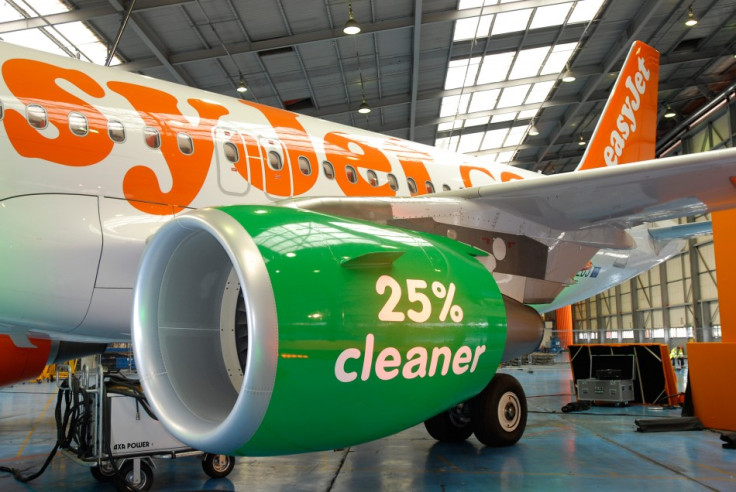EasyJet Shares Soar as Increased Traffic, Fuel Hedging, Lift Bottom Line

EasyJet, one of Britain's largest low cost airlines, told investors it was lifting its full-year profit guidance thanks to increased passenger traffic and a successful fuel-hedging programmme.
The airline said revenue rose to £1.033bn in the three months ending in June, helping the group raise profit guidance to between £280m and £300m for the year, a figure which beat analyst estimates of £272m.
"The continued strong operational and financial performance of the business combined with the fall in the price of jet fuel means that profit before tax for the year ending 30 September 2012 is anticipated to be in the range of £280m to £300m, at current fuel and exchange rates, assuming no significant disruption," chief executive Carolyn McCall said.
Shares in the group rose 2.7 percent in early trading to 545.5 pence, taking the year-to-date gain to 27.3 percent.
EasyJet said that the group has a strong balance sheet due to its falling cost base and uncollateralised hedging programmes.
The company has clearly had success with hedging its oil and fuel costs and revealed that is has a substantial amount of its energy hedged, in order to to reduce short term earnings volatility through fuel and currency hedging.
Airline hedging programmes are typically implemented to a portion of the company's fuel purchases, in order to guard against fluctuating oil prices. Any percentage of fuel that is not hedged is bought on the spot market.
For the three months to 30 September this year, 85 percent of the anticipated jet fuel requirement is hedged using forwards at $983 per metric tonne.
The group also showed that in the 12 months to 30 September 2013, the group has implemented a 77 percent hedge at $985 per metric tonne.
Airlines and Hedging
In May this year, IBTimes UK reported that most of the world's major air carriers are using hedging tools to protect less than half of their fuels costs against future price increases.
According to a research report from Mercatus Energy Advisors and Airline Economics titled The State of Airline Fuel Hedging & Risk Management, which is comprised of data from 24 different airlines, some 43 percent of participants surveyed revealed that they are quite comfortable having a significant exposure to spot market prices and therefore potential price swings, as less than half of their fuel is hedged.
A majority of airlines have only implemented a hedging programme for 21 percent and 40 percent of its fuel for 2012, in a bid to mitigate losses from rising oil prices, according to the independent consultancy firm.
This information is interesting as "many airlines have recently stated that they are fearful of oil prices rising above the current forward curve," said the group that conducted the study.
Airline hedging programmes are typically implemented to a portion of the company's fuel purchases, in order to guard against fluctuating oil prices. Any percentage of fuel that is not hedged is bought on the spot market. Out of the survey participants, 82 percent said they currently have fuel hedges in place, however that leaves 18 percent without any security against oil price movements.
Meanwhile, only 29 percent of airlines revealed they hedged 41 percent and 60 percent of its fuel. Out of the total number of survey participants that have a fuel hedging programme, only 44 percent said the fuel hedging programme was there to protect against short term price increases, while 52 percent of survey participants said the procedures are in place in order to mitigate cash volatility.
"Over the course of the past few years, volatile oil prices have wreaked havoc on the airline industry, a trend which doesn't appear to be ripe for change any time in the foreseeable future," said Mercatus in the report. "The past five years have proven to be a very challenging time for the airline industry ... adding insult to injury, the state of the capital markets has left many airlines without access to much needed capital."
© Copyright IBTimes 2024. All rights reserved.






